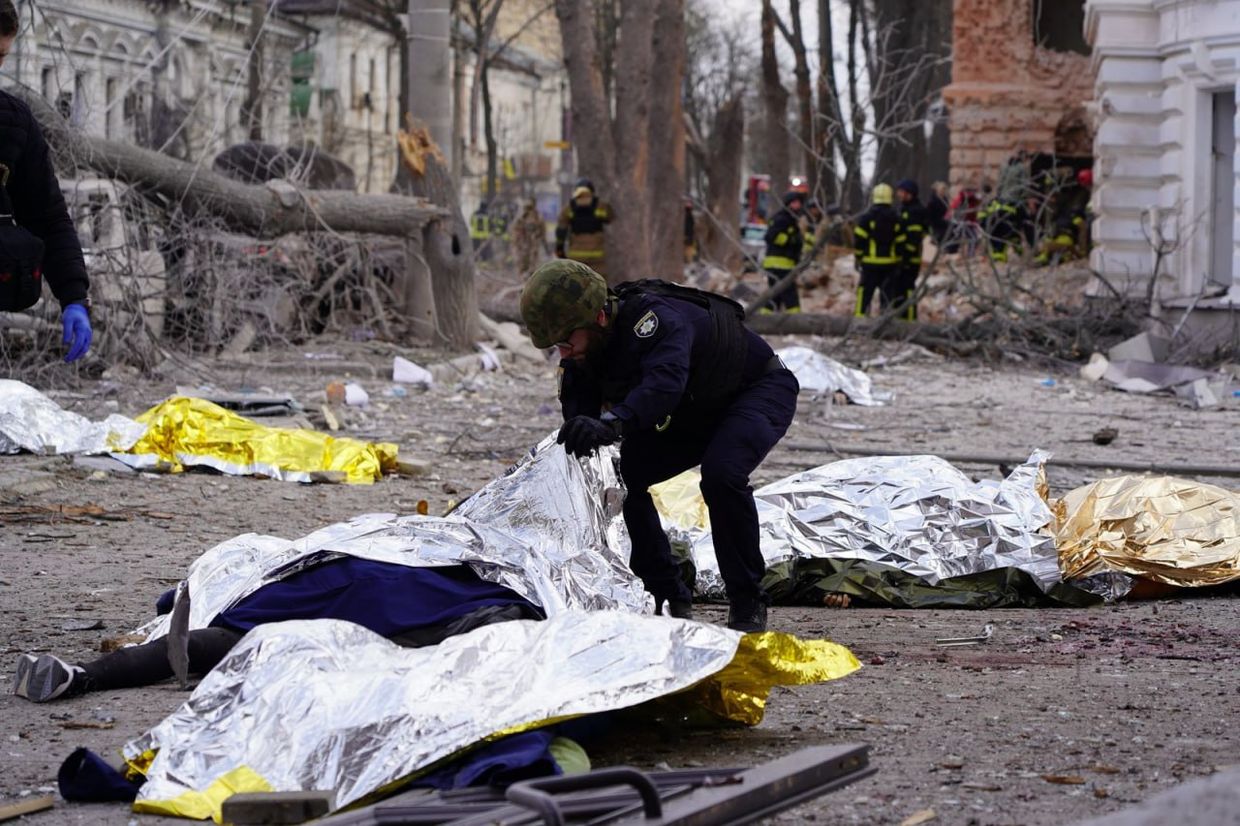Merz signals Ukraine could use Taurus missiles to target Crimea, Kerch Bridge

Friedrich Merz, Germany’s chancellor-in-waiting, suggested on April 13 that long-range Taurus missiles, if delivered to Ukraine, could be used to target strategic Russian military infrastructure in occupied Crimea, including the Kerch Bridge.
The 19-kilometer-long (12-mile) Crimean (Kerch) Bridge, constructed following Russia’s illegal occupation of Crimea in 2014 and completed in 2018, serves as a vital supply route for Russian forces. The bridge has been targeted by Ukraine multiple times, suffering heavy damage in strikes in October 2022 and July 2023.
In an interview with ARD’s Caren Miosga, Merz emphasized the need to support Ukraine in moving from a reactive to a proactive stance on the battlefield, saying Kyiv must be equipped to "shape events" and "get ahead of the situation."
"If things continue as they are, if, for example, the most important land connection between Russia and Crimea is destroyed, or if something happens on Crimea itself, where most of the Russian military logistics are located, then that would be an opportunity to bring this country strategically back into the picture finally," Merz said.
While outgoing Chancellor Olaf Scholz has repeatedly blocked the delivery of Taurus missiles over his concerns about escalation, Merz has long criticized that stance.
With Merz poised to take office following his Christian Democrats’ election win, the decision to supply Taurus missiles could soon return to the political agenda. It remains uncertain whether his future coalition partners from the Social Democrats will back the move.
Merz also clarified that he was not calling for direct German involvement in the war but rather for arming Ukraine with the capability to take the initiative.
The German politician has previously voiced support for supplying Taurus missiles to Ukraine, stressing that such a step must be coordinated with European allies.
"Our European partners are already supplying cruise missiles," he reiterated on April 13, citing British, French, and U.S. efforts. "If it is coordinated, then Germany should participate in it."
Ukraine has already received U.S.-supplied ATACMS as well as SCALP/Storm Shadow cruise missiles from France and the U.K. Both Washington and London have permitted Kyiv to use these systems to strike targets within Russian-occupied territory, including Crimea.
The previous Biden administration and the U.K. also allowed strikes with long-range missiles against military targets on Russian soil in late 2024, namely in the Russian border regions of Kursk and Bryansk. Incumbent U.S. President Donald Trump has criticized the move.
In the interview, Merz condemned a Russian attack on the Ukrainian city of Sumy on April 13, which killed at least 34 civilians and injured more than 100, calling it "a deliberate and intentional serious war crime."
"And I say to all those in Germany who naively call on (Russian President Vladimir) Putin to come to the negotiating table – this is the answer," he said. "That’s what Putin does to those who talk to him about a ceasefire."
Merz warned that Moscow interprets calls for peace as a sign of weakness.
"He obviously interprets our willingness to talk not as a serious offer to facilitate peace but as weakness," he said, referring to Hungarian Prime Minister Viktor Orban’s visit to Moscow last year, which was followed days later by a missile strike on a children's hospital in Kyiv.
The Western diplomatic isolation imposed on Putin after the outbreak of the full-scale war seems to be unraveling as Trump has resumed direct diplomatic contact with Moscow in an effort to broker a ceasefire.
These efforts have largely stalled, as the Kremlin rejected a proposal by Washington and Kyiv for a full 30-day truce and continued in deadly attacks against Ukrainian cities and infrastructure despite a partial ceasefire agreed upon on March 25.











